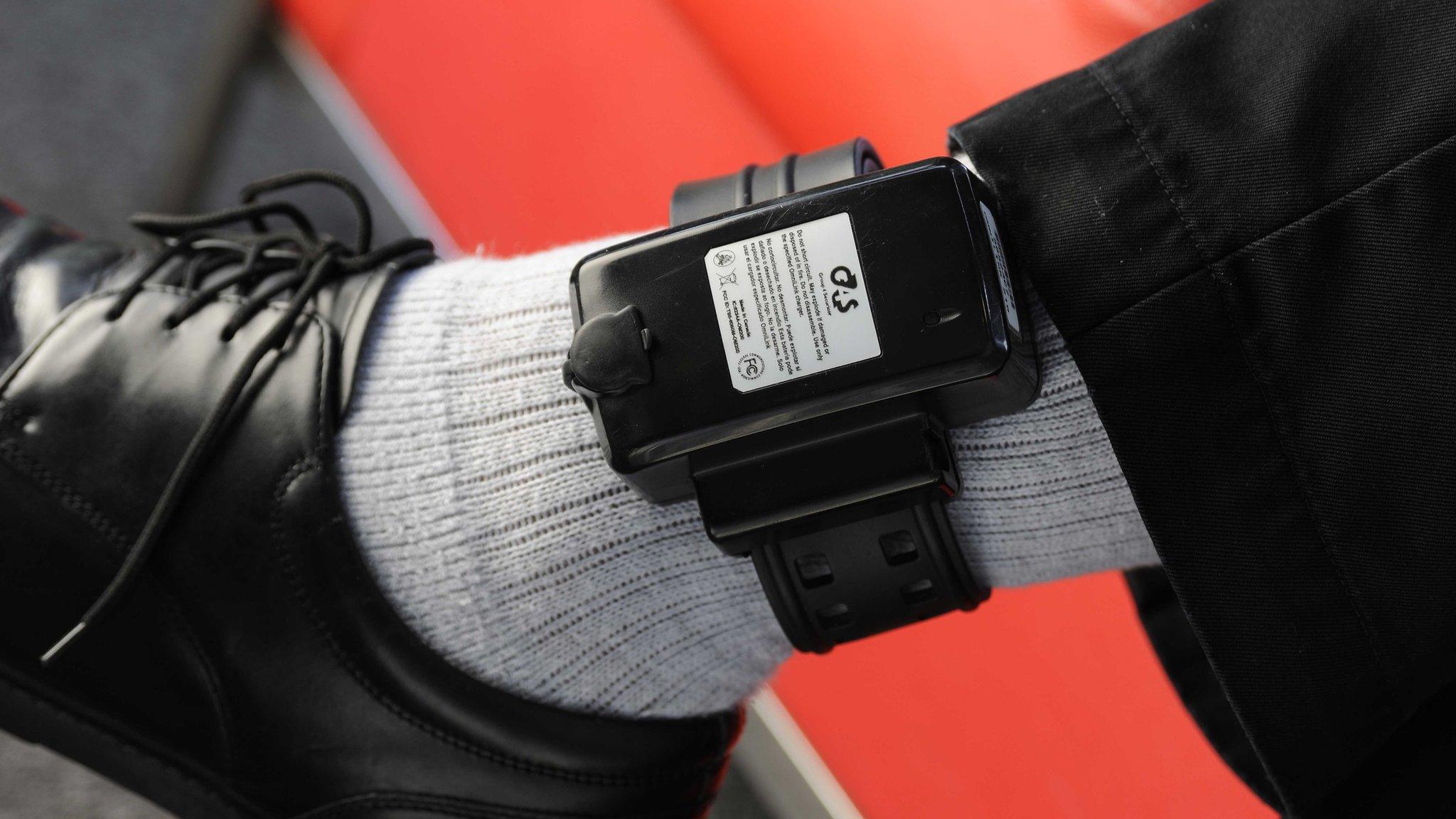Electronic tags fault leads to review of 'tampering' convictions
- Published

It is understood electronic tags were weakened by exposure to household products, to the extent some fell off
Fourteen people in Northern Ireland who were convicted for tampering with electronic tags are to have their convictions reviewed because the equipment was faulty.
One of those convicted was given a one-month prison sentence.
The others were fined or given suspended sentences.
Security company G4S, which fits and monitors the tags, said the problem was due to a faulty batch used over a 10-month period up to May this year.
Compensation costs
In addition to those convicted, it has identified another 66 people whose tags may have triggered a false alert.
The Department of Justice (DoJ), which employs the company to run the electronic tagging scheme, has written to all of those affected.
It is understood G4S will be liable for any legal and compensation costs.
The DoJ may also impose a financial penalty on the company.
About 300 people across Northern Ireland are currently fitted with an electronic tag.
They are used to electronically monitor offenders and suspects with a curfew.
The vast majority are worn as part of court conditions, imposed as an alternative to custody for those on bail awaiting trial.
Manufacturing defect
Tags are also used on people released from prison on licence under supervision, and as part of probation orders to restrict movement in cases where curfews are imposed.
It is a criminal offence for anyone ordered to wear an electronic tag to remove or damage it.

About 300 people across Northern Ireland are currently fitted with an electronic tag
The DoJ said G4S made it aware of a potential manufacturing defect in a batch of clips used to attach straps to the electronic monitoring units in May.
The batch was used in Northern Ireland between 1 August 2016 and 26 May this year.
It is understood the fault resulted in some household products weakening the strap, to the extent that the tag fell off or could be easily removed.
In a statement, the DoJ said the police and Probation Board was informed of the problem immediately.
Special court sittings will now be arranged to review the convictions for tampering with the tags.
Police records will also be reviewed to remove any reference to breaches of bail or probation conditions.
"The priority for the department is to ensure that anyone subject to electronic monitoring during the period in question has not been disadvantaged in any way as a result of the issue," said a spokesman for the DoJ.
"The department continues to stringently monitor the service delivery of all electronic monitoring in Northern Ireland and has received an assurance from G4S that all the potentially faulty clips have been removed from service."
G4S said the fault did not affect the monitoring function of the tags and there was no risk to the public.
Independently verified
The company said the defective batch of straps has been taken out of circulation and replaced.
"The new production process for this part of the equipment has been tested and independently verified by the UK Ministry of Justice's approved test laboratory," its statement adds.
"We have worked closely with the Department of Justice and other relevant parties to determine which cases might have been affected and may need to be withdrawn from any further action.
"We are satisfied that the action taken has rectified the fault and we are confident that all of those affected cases have been identified."
A similar fault was also identified in tags used in Britain.
In a statement in March this year, the Ministry of Justice said tests had revealed that about 1% (115) of the 11,500 straps in use at that time were faulty.
All of the faulty equipment was taken out of circulation and replaced.
- Published1 November 2013

- Published6 August 2013
